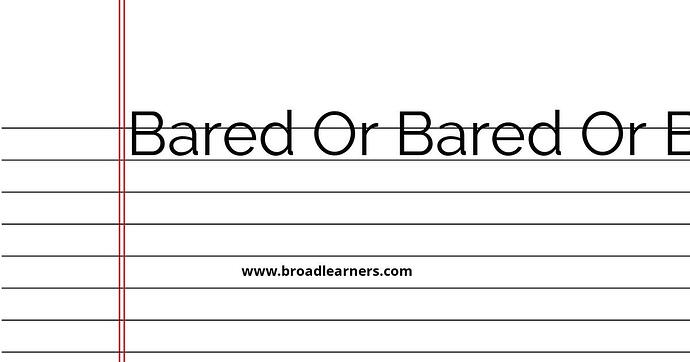'Bared', 'bear', and 'bare' are commonly confused words in English grammar. Understanding the difference between 'bared', 'bear', and 'bare' is important to use them correctly in written and spoken English.
'Bared' is the past tense and past participle of the verb 'bare', which means to uncover or reveal something. It is used to describe the action of exposing or making something visible.
'Bear' is a verb that means to carry, support, or endure something. It can also refer to the action of giving birth to young ones or producing fruit or flowers.
'Bare' is an adjective that means naked, uncovered, or without any additional items or decoration.
Let's take a closer look at the meanings and usage of 'bared', 'bear', and 'bare'.
| 'Bared' | 'Bear' | 'Bare' |
|---|---|---|
| The word 'bared' is the past tense and past participle of the verb 'bare'. | The word 'bear' is a verb that means to carry, support, or endure something. | The word 'bare' is an adjective that means naked or uncovered. |
|
|
|
To remember the difference between 'bared', 'bear', and 'bare', it can be helpful to understand their individual meanings and usage:
- 'Bared' is the past tense and past participle of 'bare', meaning to uncover or reveal something.
- 'Bear' is a verb that means to carry, support, or endure something.
- 'Bare' is an adjective that means naked, uncovered, or without any additional items or decoration.
Here are some examples of correct usage:
- The artist bared her emotions through her paintings.
- I can't bear the thought of losing you.
- She walked on the bare sand, feeling its warmth beneath her feet.
Remembering the correct usage of 'bared', 'bear', and 'bare' will improve your grammar and communication skills.
